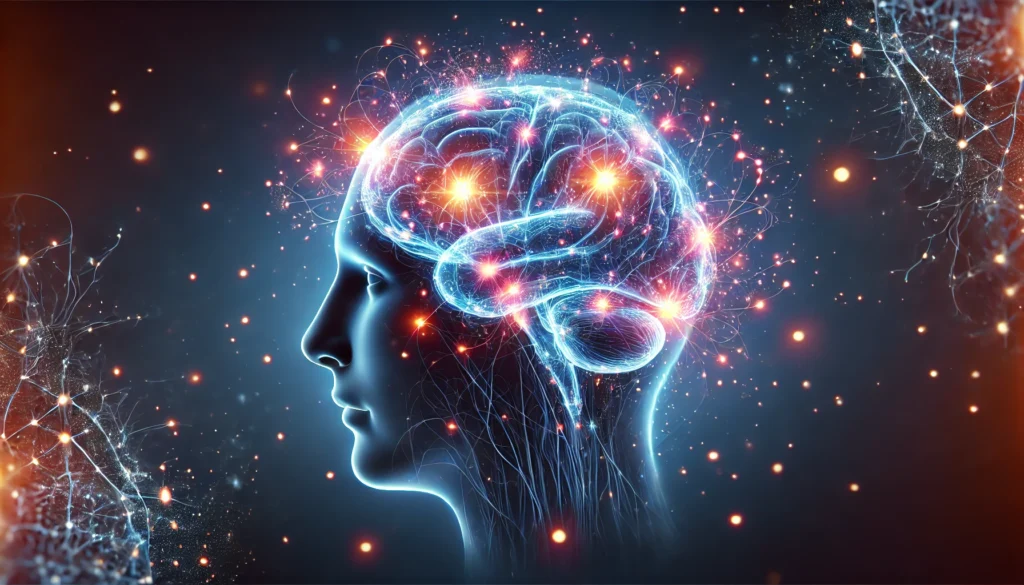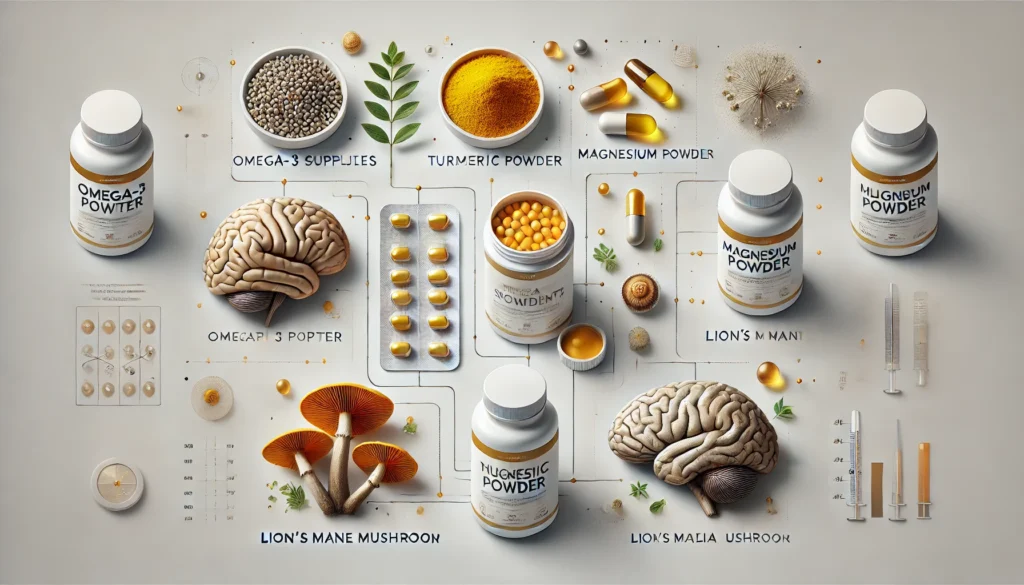Introduction
Modern life presents an unrelenting barrage of stress, digital overload, poor dietary habits, and chronic sleep deprivation—each silently chipping away at one of our most precious assets: the human brain. As cognitive fog, memory issues, and emotional instability become increasingly common, many individuals are asking themselves a critical question: how do I fix my brain? This question is not born of panic but of a deep desire to reclaim mental clarity, emotional balance, and the resilience that underpins a fulfilling life. Fortunately, emerging research in neuroscience, nutrition, and integrative medicine provides compelling answers rooted in actionable strategies.
You may also like:12 ways to keep your brain young
From the food you eat and the air you breathe to how often you move and sleep, every daily decision plays a pivotal role in shaping the health of your brain. The good news is that neuroplasticity—the brain’s capacity to rewire, repair, and rejuvenate—is not only real but responsive to evidence-based interventions. Whether you’re looking to manage brain function more effectively or rebuild cognitive performance after a setback, this comprehensive guide blends the latest science with practical insights to help you regain control. Learn what to eat, how to move, and which habits to abandon if you’re serious about transforming your mental landscape and long-term brain health.

The Science of Brain Fixing: Neuroplasticity and Cognitive Recovery
To understand how to fix your brain, it’s essential to begin with the concept of neuroplasticity. This biological principle describes the brain’s incredible ability to adapt, grow new neurons, and form fresh neural connections throughout life. Once thought to be static after childhood, we now know the brain continues to evolve, even in later years, provided it receives the right environmental and lifestyle cues.
Neuroplasticity is what allows stroke patients to regain lost skills and what helps someone recover from traumatic brain injuries or depression. However, it’s also the reason lifestyle habits—whether healthy or harmful—can either strengthen or damage your cognitive framework. If you’re trying to manage brain health effectively, you need to support the mechanisms that enable neuroplasticity: proper nutrient supply, oxygenation, detoxification, anti-inflammatory signaling, and rich cognitive stimulation. Nutrition, sleep, exercise, and stress reduction form the foundation upon which a more resilient, sharper brain can be built.
How Chronic Stress and Inflammation Impair Brain Health
Stress is not just a mental or emotional experience—it triggers a cascade of biochemical reactions that profoundly affect brain structure and function. Chronic stress increases cortisol levels, which in excess can shrink the hippocampus, the brain’s memory center, and impair the prefrontal cortex, responsible for decision-making and emotional regulation. Long-term exposure to high cortisol levels can also hinder neurogenesis and weaken synaptic plasticity.
Additionally, chronic inflammation—often fueled by poor diet, lack of sleep, or exposure to toxins—can disrupt the blood-brain barrier and lead to neuroinflammation. This silent brain inflammation is now recognized as a contributor to Alzheimer’s disease, depression, and cognitive decline. To truly fix your brain, addressing systemic inflammation must be a priority. This means adopting an anti-inflammatory diet rich in antioxidants, omega-3s, and polyphenols, while eliminating foods that drive inflammation, such as refined sugars, seed oils, and ultra-processed snacks.

Brain Nutrition: What to Eat to Rebuild and Manage Brain Health
If you’re wondering how do I fix my brain with food, the answer lies in neuro-nutrition—an emerging field focused on how specific nutrients affect the structure and function of the brain. The brain consumes about 20% of your daily caloric intake, and the type of fuel it receives directly influences its performance.
A Mediterranean-style diet is one of the most scientifically supported approaches for brain health. Rich in leafy greens, fatty fish like salmon and sardines, extra virgin olive oil, nuts, seeds, berries, and legumes, this dietary pattern provides essential fats, antioxidants, and fiber to fuel brain regeneration. Crucial micronutrients include B vitamins (especially B6, B12, and folate), vitamin D, magnesium, choline, and zinc. These support neurotransmitter production, brain detoxification, and the maintenance of myelin—the protective sheath around neurons.
Fermented foods such as kimchi, sauerkraut, and kefir support the gut-brain axis by boosting beneficial microbes that influence mood and cognition. Gut dysbiosis, or microbial imbalance, has been linked to anxiety, brain fog, and neurodegeneration. Fixing your gut through fiber-rich plant foods and fermented items can significantly help manage brain function from the inside out.
Exercise and Movement: Building a Brain That’s Physically Resilient
Physical exercise is one of the most powerful tools available to manage brain health and promote neuroplasticity. Aerobic activity increases the production of brain-derived neurotrophic factor (BDNF), a protein that acts like fertilizer for the brain. BDNF supports the growth of new neurons and protects against age-related decline.
Weightlifting and resistance training offer cognitive benefits as well, particularly through hormonal balancing and improved glucose metabolism. High-intensity interval training (HIIT) and cardiovascular workouts enhance circulation and oxygen delivery to the brain, optimizing energy metabolism.
Movement also stimulates the lymphatic and glymphatic systems, which help clear out waste products like amyloid-beta proteins associated with Alzheimer’s disease. If you want to know how do I fix my brain through physical activity, consistency is key. Just 30 minutes a day of moderate to intense exercise can significantly shift your cognitive trajectory in the right direction.
Sleep and Circadian Alignment: The Brain’s Daily Repair Cycle
You can’t fix a brain without addressing sleep. Sleep is when your brain undergoes its most critical repair and detox processes. During deep sleep, the glymphatic system becomes more active, clearing out metabolic waste. REM sleep, on the other hand, supports emotional regulation and memory consolidation.
Circadian disruption—due to shift work, excessive screen exposure at night, or erratic sleep schedules—can impair hormone regulation, elevate cortisol, and suppress melatonin production. These imbalances interfere with the brain’s ability to reset and recharge.
Strategies to manage brain function during sleep include establishing a consistent bedtime routine, minimizing blue light exposure after sunset, and getting sunlight in the morning to anchor your circadian rhythm. Magnesium glycinate, L-theanine, and melatonin (when used short-term and properly dosed) may also help restore quality sleep. Anyone asking “how do I fix my brain?” must prioritize a regular sleep-wake cycle to create the optimal environment for nightly brain recovery.

Digital Overload and Dopamine Dysfunction
One of the most overlooked contributors to cognitive decline in the modern era is digital overstimulation. The constant pings, notifications, and doom-scrolling train the brain to crave novelty and fragment attention. Over time, this rewires the brain’s dopamine system, leading to compulsive behaviors, attention deficits, and a diminished capacity for sustained focus.
Dopamine is a neurotransmitter critical for motivation, pleasure, and learning. When chronically overstimulated through social media, video games, or fast-paced entertainment, the dopamine receptors can downregulate, leading to a numbing effect. The solution lies in dopamine detox protocols, which involve a temporary reduction or elimination of digital stimulation, combined with rewarding slower, more meaningful tasks like reading, journaling, or spending time in nature.
Fixing your brain in the digital age means re-teaching it how to derive satisfaction from real-world accomplishments and mindful presence. It also involves setting clear boundaries around technology—no screens 90 minutes before bed, designated no-phone zones, and regular breaks during work.
Supplements for Cognitive Recovery: What the Science Supports
Although no pill can replace good habits, several supplements show promise for supporting brain health and cognitive restoration. If you’re serious about how to fix your brain nutritionally, consider discussing these options with a healthcare provider.
Omega-3 fatty acids, particularly DHA, are foundational for neuronal integrity and anti-inflammatory signaling. Phosphatidylserine and citicoline support cell membrane structure and cognitive performance. Curcumin, the active ingredient in turmeric, has demonstrated neuroprotective effects through its anti-inflammatory and antioxidant properties.
Lion’s Mane mushroom is a nootropic fungus that stimulates nerve growth factor (NGF), while adaptogens like Rhodiola and Ashwagandha help regulate the stress response. N-acetyl cysteine (NAC) supports glutathione production, helping the brain detoxify effectively. While supplements alone won’t solve everything, they can support broader efforts to manage brain repair and resilience.
The Role of Emotional Health in Brain Healing
Emotional trauma, unresolved stress, and suppressed emotions can embed themselves neurologically, influencing everything from hormone regulation to memory. Healing your brain also means healing your emotional body. Practices like somatic therapy, meditation, breathwork, and expressive writing can help unearth and release stored tension that may be undermining cognitive health.
Chronic emotional suppression can lead to limbic system overactivity, particularly the amygdala, which governs fear responses. Over time, this can make the brain hyper-reactive and impair higher-order thinking. Emotional regulation strategies such as heart rate variability training, guided visualization, or polyvagal-informed practices can help rewire these patterns.
If you’re asking how do I fix my brain, don’t ignore the emotional layers. The brain and the heart are deeply interconnected. Processing grief, trauma, and chronic stress often leads to significant improvements in memory, clarity, and motivation.
Environmental Toxins and Brain Fog: Reducing the Toxic Load
Environmental toxins—including heavy metals, pesticides, plasticizers like BPA, and mold spores—can cross the blood-brain barrier and interfere with neurotransmitter function. They are often a hidden but significant contributor to brain fog, fatigue, and mood disorders.
To manage brain health naturally, detoxification pathways must be supported through proper hydration, liver-supportive foods (like cruciferous vegetables), and regular sweating through exercise or sauna therapy. Avoiding synthetic fragrances, filtering your drinking water, and reducing plastic usage are also effective ways to reduce the cumulative toxic burden.
Some individuals may benefit from functional lab testing for heavy metals, mold exposure, or chemical sensitivities. Chelation therapies, binders like activated charcoal or zeolite, and nutritional detox programs should be supervised by an experienced practitioner. Removing toxic obstacles to healing allows the brain to operate with greater clarity and energy.

Social Connection, Purpose, and Mental Stimulation
Humans are wired for connection, and the brain thrives when it is socially engaged. Loneliness has been shown to increase the risk of dementia and cognitive decline. In contrast, strong social bonds, meaningful relationships, and a sense of belonging activate reward circuits in the brain that enhance emotional resilience and mental acuity.
Equally important is a sense of purpose. Individuals who regularly engage in activities that bring meaning—whether through work, creative expression, or service—tend to show slower rates of cognitive aging. Mental stimulation through lifelong learning, puzzles, music, or language acquisition helps maintain neural plasticity and delay degenerative processes.
To manage brain health comprehensively, surround yourself with people who uplift and challenge you, engage in activities that stretch your intellect, and never stop learning. A healthy brain is not just the absence of disease but the presence of joy, curiosity, and connection.
Frequently Asked Questions
1. What is the first step I should take to fix my brain naturally?
The first step is to assess your current lifestyle honestly. Begin by improving your diet with brain-supportive foods such as fatty fish, berries, leafy greens, and nuts. Next, establish a consistent sleep schedule and aim for 7–9 hours of quality rest. Managing stress through mindfulness, breathwork, or regular physical activity also sets the foundation for cognitive recovery. These basic adjustments, when practiced consistently, often yield noticeable improvements in clarity, memory, and emotional regulation.
2. How do nutrition and supplements help manage brain function?
Nutrition provides the raw materials needed for neurotransmitter synthesis, cellular repair, and energy production in the brain. Essential fatty acids, vitamins, and minerals are foundational to healthy cognitive function. Supplements such as omega-3s, magnesium, B-complex, and Lion’s Mane mushroom offer targeted support, especially for those with dietary gaps or increased stress. While not substitutes for lifestyle changes, supplements can enhance the brain’s ability to repair and maintain itself.
3. Can exercise really improve my brain health?
Absolutely. Regular physical activity increases blood flow to the brain, stimulates the release of BDNF, and enhances mood by boosting dopamine and serotonin levels. Exercise also helps regulate insulin, reduce inflammation, and support sleep—all of which are crucial for brain optimization. Both aerobic and strength-based routines offer cognitive benefits, especially when performed consistently over time.
4. Is brain fog a sign of serious neurological issues?
Brain fog can be a symptom of underlying imbalances such as poor diet, inflammation, sleep deprivation, stress, or toxin exposure. While it’s not a disease in itself, persistent cognitive fog warrants deeper investigation. In some cases, it could be an early indicator of thyroid dysfunction, blood sugar dysregulation, or even neurodegenerative disease. Identifying and correcting root causes can often eliminate the fog entirely.
5. How does sleep affect brain repair and mental performance?
Sleep is when the brain performs essential housekeeping functions, such as clearing out toxins and consolidating memories. Poor sleep can lead to impaired decision-making, reduced focus, and emotional instability. The brain’s glymphatic system, which becomes active during deep sleep, flushes out waste products that could otherwise accumulate and damage neurons. Ensuring circadian alignment and high-quality rest is one of the most effective ways to fix and manage your brain.
6. What role does emotional health play in cognitive recovery?
Emotional health is intimately tied to brain function. Chronic stress, anxiety, and unresolved trauma activate the amygdala and reduce prefrontal cortex activity, impairing your ability to think clearly. Healing emotional wounds through therapy, self-reflection, or mindfulness allows for better neurological balance and enhances overall resilience. Addressing emotional health is not a luxury—it’s a necessity for lasting brain recovery.
7. Can environmental toxins really damage brain health?
Yes, exposure to toxins such as heavy metals, mold, and industrial chemicals can disrupt neurotransmitter balance, induce oxidative stress, and impair mitochondrial function in the brain. These effects can manifest as fatigue, poor memory, or mood swings. Reducing toxin exposure through cleaner air, water, and food, along with supporting detoxification pathways, plays a major role in cognitive restoration.
8. How important is social connection for brain health?
Social interaction stimulates brain regions involved in emotional processing, memory, and empathy. Regular engagement with others can protect against depression and cognitive decline. Isolation, on the other hand, is linked to higher rates of dementia. Building a supportive community and nurturing meaningful relationships enhances brain resilience and overall well-being.
9. Are nootropic supplements safe and effective?
Some nootropic supplements are backed by evidence and can enhance cognitive function when used responsibly. These include substances like phosphatidylserine, citicoline, and adaptogens like Rhodiola. However, not all nootropics are safe or effective for everyone. Consulting a qualified healthcare provider is essential before beginning any regimen, especially if you are managing existing brain health conditions or taking medication.
10. How long does it take to fix your brain naturally?
The timeline for brain recovery varies based on individual health status, lifestyle habits, and the severity of existing damage. However, many people begin to notice improvements within weeks of adopting targeted nutrition, better sleep hygiene, and stress-reduction practices. For deeper healing and neurological rewiring, a consistent, long-term approach over months or even years is necessary. Patience, persistence, and the right strategy are key.

Conclusion
Fixing your brain naturally is both an art and a science. The brain is a dynamic organ, constantly evolving in response to your daily choices. From nutrient-dense meals and deep sleep to emotional healing and meaningful social interaction, every input matters. If you’re seriously asking yourself, “how do I fix my brain?” the journey begins with daily action and commitment. By understanding how to manage brain health holistically and implementing science-backed strategies, you can unlock your full cognitive potential and build a resilient, vibrant mind for years to come.
Was this article helpful? Don’t let it stop with you. Share it right now with someone who needs to see it—whether it’s a friend, a colleague, or your whole network. And if staying ahead on this topic matters to you, subscribe to this publication for the most up-to-date information. You’ll get the latest insights delivered straight to you—no searching, no missing out.
Further Reading:
What Science Reveals About a Deteriorating Brain and Loss of Brain Function



